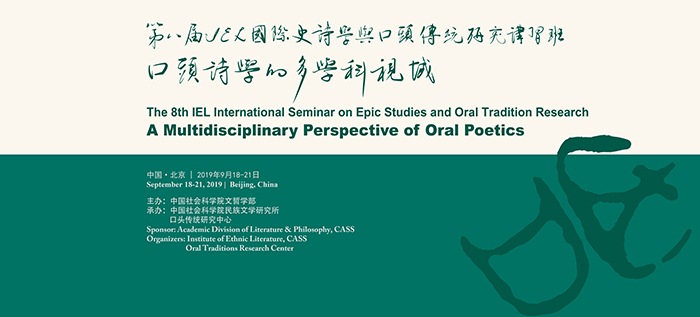




非物质文化遗产过程性保护与口头传统建档:指导性原则与操作规程
巴莫曲布嫫
中国社会科学院民族文学研究所,研究员
中国
研究领域:彝族史诗;口头传统与书写传统;非物质文化遗产保护
在联合国教科文组织《保护非物质文化遗产公约》的框架内,社区赋权和过程性保护既是非物质文化遗产保护工作的两个重心,也是非遗建档的两条主线:一则以社区为基础,一则以过程为中心。在保护实践中,这一双重观照应当整合为并行不悖的行动方略,让动态性保护理念成为持续性技术路线的基础支撑。因而,本讲主要针对以下几个相互关联的问题进行讨论:(1)基于《公约》有关“保护”的定义,厘清“各种保护措施”之间的关联、错位及对接,说明社区(包括群体和个人)与多元行动方之于过程性保护和参与式发展的互动作用;(2)根据专家会讨论成果,解释非物质文化遗产项目的确认、定义及清单编制的指导性原则和非遗建档的基本路径;(3)围绕非遗领域和非遗项目之间的互涉性关联,分析口头传统领域非遗项目的建档需求、基本规程及伦理关切。在讨论过程中,将结合2003《公约》及其《操作指南》、保护非物质文化遗产政府间委员会的相关决议,以及《公约》秘书处编制的培训教程,为基于不同目标的非遗建档和归档解读若干关键词,分析遗产项目表述中的不当用词,由此把握非物质文化遗产过程性保护的目标和理念,尤其针对非遗项目的确认、建档及研究等关联性操作环节,从认识论和实践论两个层面诠释《公约》的概念工具、话语系统及伦理原则,以期说明口头传统研究在非遗保护这一学科互涉领域的学术定位和专业遵循。
【主要参考文献】文化和旅游部国际交流与合作局编:《联合国教科文组织〈保护非物质文化遗产公约〉基础文件汇编(2016版)》(Kindle电子书)。北京:中国数字文化集团有限公司,2019。
下载说明见:https://www.chinesefolklore.org.cn/web/index.php?NewsID=18834
巴莫曲布嫫,彝族,北京师范大学文学院法学博士(民俗学专业)。中国社会科学院民族文学研究所研究员、口头传统研究中心主任;中国社会科学院大学教授、博士生导师。主要研究方向为口头传统与书写传统,就彝族毕摩仪式文学、古代诗学理论和诺苏支系口头论辩及史诗演述传统进行过目标化田野研究。2004年以来,深度参与了地方、国家和国际层面的非物质文化遗产保护实践,对《保护非物质文化遗产公约》的政策制订、行动纲领和实践方略有密切的学术跟踪,在该领域发表过若干文章。
Safeguarding-in-Process of the Intangible Cultural Heritage and Documentation of Oral Tradition: Guiding Principles and Operational Procedures
BAMO Qubumo
Senior Research Fellow, Institute of Ethnic Literature, Chinese Academy of Social Sciences
China
Fields of Research: Yi epics, orality and literacy, the safeguarding of ICH
Within the framework of the Convention for the Safeguarding of the Intangible Cultural Heritage (hereinafter referred to as the Convention) adopted by UNESCO in 2003, the empowerment of communities and the safeguarding-in-process are not only the two focuses on the safeguarding of the intangible cultural heritage, but also the two main lines of ICH documentation: one is community-based, and the other is process-centered. In the safeguarding practices, the two-fold solution should be integrated into a parallel strategy of action, making the conception of dynamic safeguarding a fundamental support for a consistent technical route. In view of the abovementioned, the present lecture mainly addresses the following interrelated issues: (1) In accordance with the definition of “safeguarding” in the Convention, to clarify the connection between, dislocation of, and docking with various safeguarding measures, while explaining the interaction between communities (including groups and individuals) and multi-actors in the safeguarding-in-process and participatory development; (2) Based on the results of the ICH expert meeting, to explain the guiding principles for the identification and definition of ICH elements and inventorying, and basic approaches to ICH documentation; (3) Centered on the interrelated or overlapped relationship between ICH domains and ICH elements, to analyze the needs for documentation and archiving, basic rules and ethical concerns of ICH elements in the domain of oral tradition. In the course of discussion, the Convention and its Operational Directives, the relevant decisions adopted by the Intergovernmental Committee for the Safeguarding of the Intangible Cultural Heritage, as well as the training materials developed by the Secretariat of the Convention will be combined to provide some keywords, especially to indicate some inappropriate words in the representation of ICH elements, for interpretation of ICH documentation and archiving based on different objectives, so as to grasp the objectives and concepts of the safeguarding-in-process of ICH. In brief, the presentation aims at interpreting the conceptual tools, discourse system, and ethical principles of the Convention from two perspectives of epistemology and practice, thereby illuminating the scholarship orientation of and professional compliance with oral tradition research in the interdisciplinary field of ICH safeguarding.
Main References: Basic Texts of UNESCO’s Convention on the Safeguarding of the Intangible Cultural Heritage: 2016 Edition (Chinese version, Kindle e-book), compiled by the Bureau of International Exchanges and Cooperation, Ministry of Culture and Tourism of China, Beijing: China Digital Culture Group Co., Ltd., 2019.
For details, please visit:
https://www.chinesefolklore.org.cn/web/index.php?NewsID=18834
Born in the Great Cold Mountains, Sichuan, Bamo Qubumo originates from the Nuosu, a subgroup of the Yi. She obtained her Ph.D. in Folkloristics at Beijing Normal University in 2003. She is Senior Fellow and Director of the Oral Traditions Research Center at the Institute of Ethnic Literature (IEL), Chinese Academy of Social Sciences (CASS), Professor and Ph.D. Advisor at University of Chinese Academy of Social Sciences (UCASS). Concentrating on the ties between the written and oral traditions of the Yi, she has conducted long-term targeted field studies on various aspects of Bimo ritualized literature, ancient poetics, Nuosu verbal dueling, and epic performances. Since 2004, she has been extensively engaged in the field of intangible cultural heritage at local, national, and international levels, possessing competence and consulting expertise in policy-making, action plans, and strategic practices under the Convention, and has published a number of articles on the safeguarding of the ICH.



